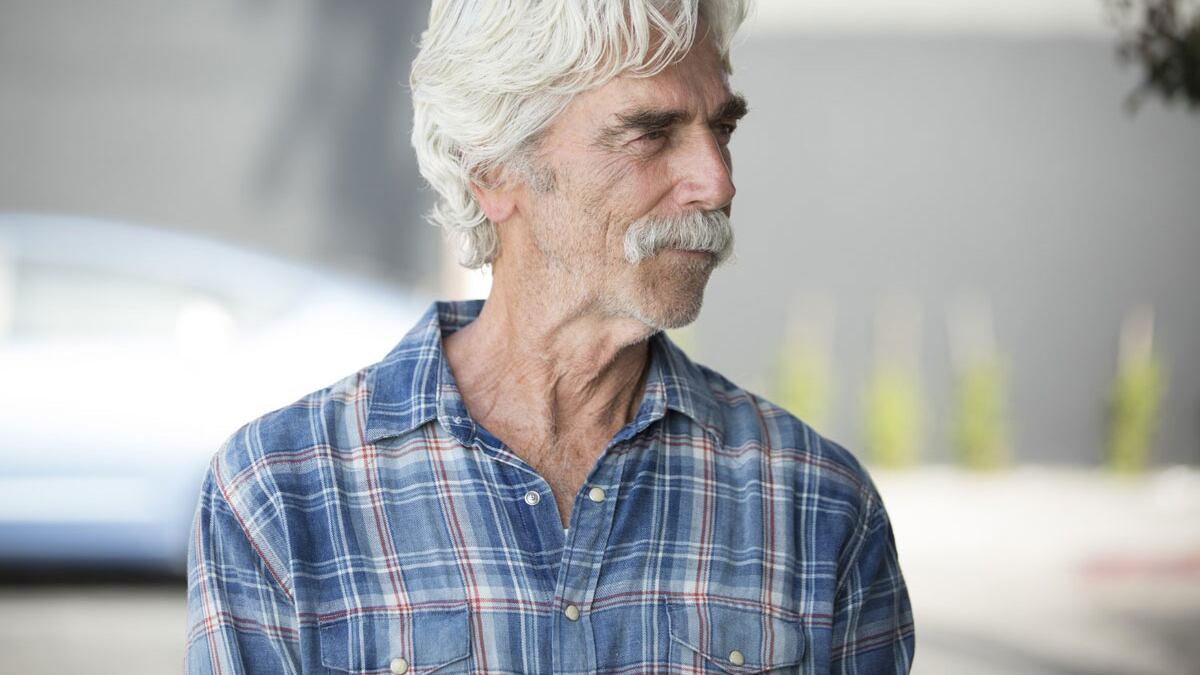Sam Elliott's acting career of almost 50 years has been as steady and respectable as one could hope for in Hollywood. But the Portland-raised actor seems less associated with his actual body of work than with his bushy, silver horseshoe mustache and the timbre of his voice—so sonorous it's like Father Time dressed as a cowboy and willed his way onto the big screen. They define even his most memorable performance as the bowling-alley spiritual advisor to the Dude in The Big Lebowski.
Written and directed by indie up-and-comer Brett Haley (I'll See You in My Dreams, The New Year), The Hero initially answers the question with a dour "no." We're introduced to Lee Hayden (Elliott), a 71-year-old actor, as he delivers the line "Lone Star barbecue: it's the perfect pardner for your chicken" with enough dejection to make Eeyore blush. Hayden is a man who waits for phone calls—from his agent who's been failing to scrounge up work for him, his estranged daughter Lucy (Krysten Ritter) or, more pressingly, his oncologist, who soon delivers a diagnosis of pancreatic cancer.
Hayden is too overwhelmed with ennui to make a move toward life-lengthening procedures, hospice care or even telling anyone he's sick: Not even his only friend Jeremy (Nick Offerman, who brings the hilarious stern of Ron Swanson to a hoodie-swaddled former child actor-turned weed dealer), let alone his daughter or ex-wife (Katharine Ross, Elliott's actual wife). Instead, he tells them, and flirtatious new acquaintance Charlotte (Laura Prepon of Orange Is the New Black) that he's making a movie.
Then, after a chance encounter, Hayden invites Charlotte to a lifetime achievement award ceremony, where a video of his MDMA-fueled acceptance speech goes viral. As his career gets a surprise jolt and his relationship with Charlotte deepens, Hayden must confront both his mortality and his insecurities.
And they're confronted with as much seriousness and few smiles as possible. The Hero fully buys into Hayden as being "a sad, old pothead," as Charlotte calls him, treating his every fit of pique and "why me?" self-loathing with utmost seriousness. This becomes tough to reconcile with Hayden's exploits: a moneyed life filled with hanging out and smoking weed and taking molly and receiving awards from adoring fans and—spoiler alert—having sex with a beautiful woman.
The film somberly nods along through blue-filtered, artfully framed shots of the back of Elliot's luxurious steel-gray mane and several visits to the beach, where waves recede into the Pacific to the sounds of plinky-plonk piano music. The Hero even treats an old-man-balls joke from Charlotte as a grievous wound to Hayden's pride. If old-man balls aren't funny, may God help me, I don't know what is.
This isn't to take away from Elliott's performance. As Hayden, Elliott gets to have his mustache cake and eat it too, navigating his now-archetypal cowboy drawl toward tenderness and self doubt. Elliott has a wonderfully expressive face that doesn't just burst into stoned grins, but quietly sinks into disappointment and retreats into embarrassment. Haley, who wrote this script specifically with Elliott in mind, makes a strong argument that he is a leading man who never was—an outsized avatar of vulnerable masculinity never properly utilized in a cowboy hat.
Unfortunately, Haley substitutes Elliott's performance for an answer to the big questions he asks in the first act. By never challenging the terms of Hayden's self-imposed misery, The Hero never resolves whether Hayden needs a second chance when he, perhaps, had a very good first one.
Critic's rating: 2/4 stars
